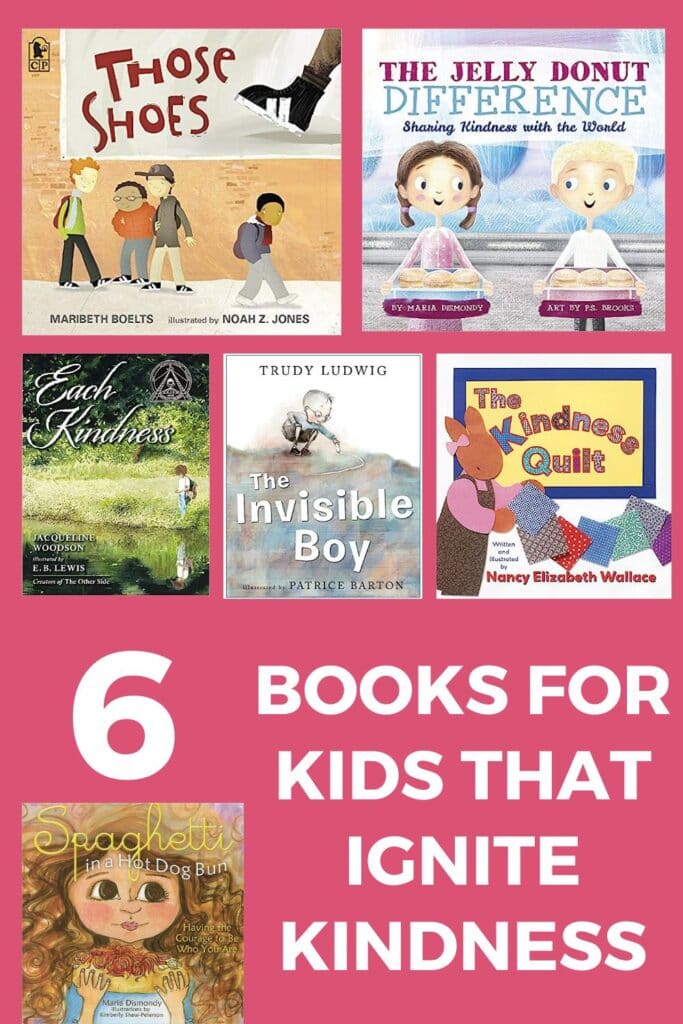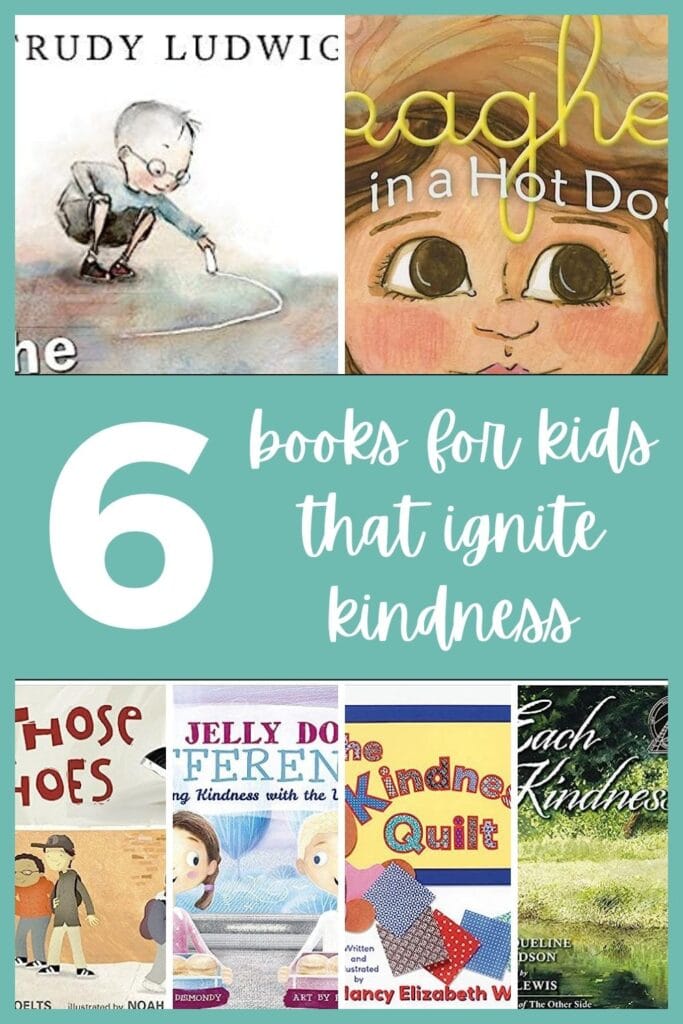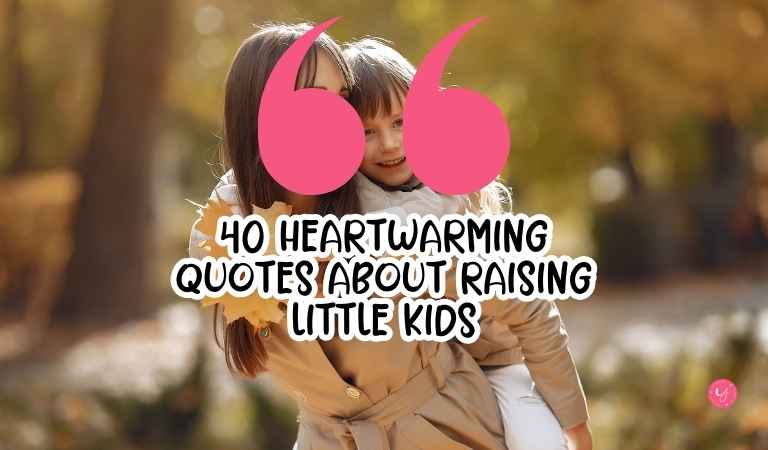Raising Compassionate Kids: 6 Books That Ignite Kindness

Are you a desperate parent, secretly wondering if your little one will ever grow into a kind and compassionate human?
Do you lie awake at night, haunted by doubts and uncertainties, questioning your parenting skills?
Take a deep breath, my friend, because you’re not alone in this journey.

I get it. Parenting can be tough, and nurturing kindness in a world that sometimes feels devoid of it can feel like an uphill battle. You may be thinking, “Will my child ever learn to show empathy? Can compassion truly be ignited within them?”
Well, let me tell you, those questions are as common as spilled milk and bedtime tantrums.
Now, hold on tight, because I’m about to give you a promise. A promise that will light a spark of hope within you and guide you on this incredible journey of raising a kind kid.
So, come, let’s embark on a magical adventure where the power of storytelling will ignite the compassion within your child’s heart.
Here are the list of 6 books that ignite kindness in children that you can try.
Book 1: “The Invisible Boy” by Trudy Ludwig
“The Invisible Boy” by Trudy Ludwig tells the story of Brian, a quiet and overlooked boy who discovers his voice through an act of kindness. It’s a tale that challenges conventional notions of popularity and sheds light on the impact of inclusivity.

In a world where children are often judged by their outward appearance or social status, it’s easy for some to feel invisible or excluded.
Ever worried about your own child experiencing such feelings?
It’s normal, but the thing is: kindness has the incredible power to break down social barriers and foster inclusivity.
It’s like being in a classroom—a bustling hive of activity.
Among the sea of students, there’s a child who often sits alone, seemingly unnoticed.
This child, like Brian in “The Invisible Boy,” longs to be seen, to be heard.
How about someone shower a kind gesture like:
- A simple invitation to join in a game.
- A warm smile that acknowledges the other child’s presence?
This is exactly what this book speaks of.
Through these acts of kindness, your child can become a catalyst for change, creating an environment where no one feels invisible.
Key lessons from “The Invisible Boy”:
- Kindness breaks down social barriers.
- Inclusivity and empathy are essential for creating an inclusive environment.
- Small gestures of kindness can make a significant impact on others.
By embracing these lessons and discussing them with your child, you can help them develop a compassionate mindset and empower them to make a difference in the lives of those around them. “The Invisible Boy” is a powerful tool to spark conversations about kindness and empathy that will shape your child’s understanding of compassion.
Book 2: “Each Kindness” by Jacqueline Woodson
In the book “Each Kindness” by Jacqueline Woodson, readers are taken on a powerful journey that explores the impact of missed opportunities for kindness and the enduring importance of empathy.
It’s a narrative that challenges the notion of kindness as a one-time action and instead emphasizes its ongoing commitment.

So, what do you think –
Is it enough for my child to show kindness occasionally?
Or should it be a consistent part of their character?
The reality is that kindness is not a fleeting act; it’s a way of being—a continuous practice that can shape relationships and transform lives.
What if your child witnesses a classmate being teased by others?
In that moment, your child has a choice—to remain silent or to stand up for what is right.
In “Each Kindness,” the protagonist, Chloe, learns a powerful lesson about the significance of seizing every opportunity to show kindness.
You can help your child understand the value of embracing these opportunities by:
- Discussing the importance of empathy and compassion.
- Encouraging them to stand up against bullying or unfair treatment.
- Teaching them to treat others with kindness consistently.
By empowering your child to embrace kindness as a way of life, you enable them to make a positive impact and foster a culture of compassion.
Key lessons from “Each Kindness”:
- Kindness is a continuous practice, not just a one-time action.
- Seizing opportunities to show kindness can have a lasting impact.
- Standing up against unfair treatment promotes empathy and compassion.
Engage in conversations about these lessons with your child, and let “Each Kindness” serve as a catalyst for cultivating a kind and empathetic mindset.
Book 3: “Those Shoes” by Maribeth Boelts
“Those Shoes” by Maribeth Boelts takes readers on a journey with Jeremy, a young boy who learns about empathy, sacrifice, and the true meaning of kindness.
This heartfelt story shines a light on the importance of selflessness and considering the needs of others.
In a society that often promotes a culture of materialism and self-centeredness, it’s essential to teach our children the value of sharing and supporting those in need.
This may require challenging the notion that kindness is solely based on personal gain or satisfaction.

It’s about a boy longing for a new pair of shoes—the ones all his friends are wearing.
When similar situations happen at home, instead of solely focusing on their own desires, you can:
- Share Jeremy’s experience in “Those Shoes” to help your child understand the true essence of kindness.
- Encourage them to consider the needs of others.
- Explore ways to support those who may be less fortunate, such as donating gently used items or volunteering as a family.
- By cultivating a sense of empathy and generosity, you empower your child to make a difference and create a kinder world.
Key lessons from “Those Shoes”:
- Kindness involves selflessness and considering the needs of others.
- Material possessions should not be the sole focus of kindness.
- Supporting those in need fosters empathy and compassion.
By cultivating a sense of empathy and generosity, you empower your child to make a difference and create a kinder world.
Book 4: “Spaghetti in a Hot Dog Bun” by Maria Dismondy
In “Spaghetti in a Hot Dog Bun” by Maria Dismondy, readers follow Lucy’s inspiring journey as she learns to embrace differences, stand up to bullying, and spread kindness.
This delightful tale challenges the misconception that kindness is a passive act, revealing that it often requires courage and standing up for what is right.

Empowering your child to be kind in the face of adversity can be tricky.
Can they develop the confidence to stand up against injustice and promote acceptance?
Let’s imagine a situation: Your child witnesses an act of bullying—a moment that demands bravery and compassion. In Lucy’s shoes, they have an opportunity to make a difference.
Here’s what you can do to empower your child:
- Discuss the story of Lucy in “Spaghetti in a Hot Dog Bun” and the challenges she faces.
- Help your child recognize that kindness requires taking a stand and being an advocate for those who may be marginalized.
- Encourage them to be the voice of empathy and acceptance, inspiring others to follow suit.
- By instilling a sense of courage and compassion in your child, you equip them to combat bullying and spread kindness.
Key lessons from “Spaghetti in a Hot Dog Bun”:
- Kindness often requires standing up for what is right.
- Embracing differences promotes acceptance and empathy.
- Being courageous can make a significant impact on others.
Overall, “Spaghetti in a Hot Dog Bun” is a great book to foster a kind and inclusive mindset.
Book 5: “The Kindness Quilt” by Nancy Elizabeth Wallace
“The Kindness Quilt” by Nancy Elizabeth Wallace is a heartwarming tale that explores the power of kindness and unity within a diverse community.
Through the creation of a quilt representing acts of kindness, readers learn the value of inclusivity and the strength of collective actions.

Children appreciating and respecting diversity is something that every parent dreams of.
But how can we instill these values in their hearts and minds?
“The Kindness Quilt” offers a beautiful metaphorical journey that showcases the potential for kindness to create a sense of belonging and unity.
To foster a sense of inclusivity and unity in your child, you can:
- Discuss the significance of the kindness quilt in the story and how it represents collective actions.
- Inspire your child to see the value in every act of kindness, no matter how small.
- Create opportunities for your child to engage in acts of kindness within your community.
- By nurturing a mindset of kindness and celebrating differences, you help your child create an environment where everyone feels welcome.
Key lessons from “The Kindness Quilt”:
- Kindness creates a sense of belonging and unity.
- Appreciating diversity fosters a culture of inclusivity.
- Collective acts of kindness have a significant impact on the community.
“The Kindness Quilt” is an awesome book to inspire our kids to embrace kindness, diversity, and unity.
Book 6: “The Jelly Donut Difference” by Maria Dismondy
“The Jelly Donut Difference” by Maria Dismondy follows the heartwarming story of two siblings who discover the joy of performing random acts of kindness.
This delightful tale highlights the ripple effect of small acts of kindness, showing how they can transform the lives of others.

Even as adults we often underestimate the impact of seemingly small acts of kindness.
We may wonder if our efforts truly make a difference.
But, the fact is a simple act of generosity, like sharing a jelly donut, can brighten someone’s day and inspire a chain reaction of kindness.
This is what this book is about.
To help your child understand the power of their actions, you can:
- Explore the story of “The Jelly Donut Difference” together, emphasizing the importance of small acts of kindness.
- Encourage your child to look for opportunities to spread kindness in their everyday life.
- Discuss the positive effects of their actions and how they contribute to creating a kinder and more compassionate world.
- By nurturing a mindset of kindness and empathy, you empower your child to make a difference in the lives of others.
Key lessons from “The Jelly Donut Difference”:
- Small acts of kindness can have a significant impact.
- Random acts of kindness inspire others and create a ripple effect.
- Empathy and generosity lead to a more compassionate world.
To be precise, “The Jelly Donut Difference” book can be a perfect catalyst for cultivating a kind and giving spirit.
Conclusion
We have explored six benefit-driven, unconventional, and currently on-sale books that have the power to ignite compassion in children’s hearts.
Through these engaging stories, we can cultivate empathy, inclusivity, and kindness in young minds.
Remember, as parents, we play a vital role in nurturing our children’s character.

By embracing the messages within these books and incorporating them into our everyday lives, we can raise a generation of kind, compassionate, and socially aware individuals.
So, grab these books, snuggle up with your child, and embark on this incredible journey together. Let us sow the seeds of compassion, empathy, and kindness, nurturing the hearts and minds of our children.
Together, we can create a brighter and more compassionate world—one story, one act of kindness at a time.




